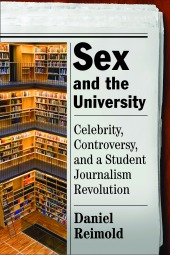An excellent recent post by CICM intern Lauren Rabaino reveals in pie chart form what those of us following student media’s attempts at Twitter have long known: Is quality tweeting taking place? Not so much.
—
Two-thirds of the 50 college media Twitter accounts Rabaino looked at are either solely serving as tiny-url advertisers for stories on the outlets’ sites or saying nothing at all. The Daily Tar Heel‘s recent tweeterific real-time coverage of a campus bomb scare at UNC is proof that Twitter *can* be harnessed as a news tool at the student level. Is it happening in any sustained sense as of yet? I am a follower of most of the accounts cited in the Rabaino breakdown and I can safely say the answer is a resounding no.
—-
Now here in Singapore, Twitter is about as relevant as a winter coat. The student-age social media elite of S’pore and Southeast Asia instead are (at times quite rabid) aficionados of a competing microblogging service: Plurk, the “social journal for your life.” I recently dove into the Plurk-osphere and want to boldly declare: It is FAR superior to Twitter in a number of ways.
—
Chief among them: It cuts down on the overwhelming randomness of Twitter-mania, providing a clear-cut timeline to follow and the ability to respond to specific plurks, building a much stronger sense of community. In this latter respect, student bloggers here use the service to hype their posts and create quite a following, in part because they are able to communicate directly to their friends/fans much more conveniently than via the big T. Also, an honest confession: I find Plurk simply to be a lot more fun than its chief competwitter.
—
What do you think- Twitter or Plurk?


